France has stopped clinging to notions of being a great power and is embracing the middle power moment. But Emmanuel Macron has his work cut out if he is to secure his country’s global standing before his term in office ends.
Rym Momtaz
{
"authors": [
"Sada Debate"
],
"type": "commentary",
"centerAffiliationAll": "",
"centers": [
"Carnegie Endowment for International Peace"
],
"collections": [
"Arab Awakening"
],
"englishNewsletterAll": "",
"nonEnglishNewsletterAll": "",
"primaryCenter": "Carnegie Endowment for International Peace",
"programAffiliation": "",
"programs": [],
"projects": [
"Tunisia Monitor"
],
"regions": [
"North Africa",
"Tunisia"
],
"topics": [
"Democracy",
"Security"
]
}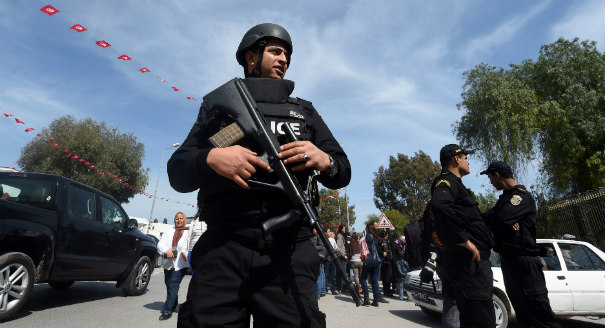
Source: Getty
Can Tunisia deal with terrorism without resorting to despotic practices? Four experts offer insights on Tunisia’s pressing security challenges and the country’s readiness to address them.
In the wake of the Bardo attacks that killed 22 on March 18, debate has reemerged in Tunisia over how to confront terrorism in the country. Although efforts to push through a new anti-terrorism law have wide support, concerns persist over whether tighter restrictions will merely reinforce a return to a Ben Ali-era authoritarian state. Can Tunisia deal with terrorism without resorting to despotic practices? And how can decisionmakers put aside their political differences to formulate effective strategies to ensure Tunisia’s security in the long term?
Four experts offer insights on Tunisia’s pressing security challenges and the country’s readiness to address them. Please join the discussion by sharing your own views in the comments section.
Duncan Pickard
Duncan Pickard, a nonresident fellow at the Rafik Hariri Center for the Middle East and a JD candidate at Stanford Law School.
The terrorist attack on the Bardo Museum did not come out of nowhere. Tunisian security services have been trying to root out terrorist cells across the country for several years, most recently in Chaambi Mountain. Tunisia’s struggle with violent jihadism represents perhaps the biggest threat to its fragile transition to democracy. The threat of violence could convince government officials and the public at large to privilege security over democracy, and it is not clear that the new government will be able to balance both.
The current administration has begun to erode some of the protections ensuring the balance of power envisioned by the constitution. President Beji Caid Essebsi was elected after his campaign espoused the strong executive model of Habib Bourguiba as an antidote to increasing domestic and regional security threats. The constitution attempts to balance executive power by creating a dual executive, with responsibilities shared between an elected president and a prime minister chosen by parliament. But in reality, the parliament, also controlled by Essebsi’s party, deferred the selection of the prime minister until the presidential election, allowing Essebsi to handpick his choice. A new Constitutional Court and Human Rights Commission are also supposed to check executive power, but they will not be up and running until the end of this year at the latest. The new constitutional order is particularly susceptible to renewed expansion of executive power, given the country’s legacy of a central executive (which Essebsi helped construct), the weakness of new political institutions that can check that power, and the reality of the jihadi threat.
That is not to say that the constitution is an ineffective restraint on executive power. The constitution provides a strong role for parliament and opposition parties. Ennahdha, the Islamic party that was in power during the constitution-making process, joined the government (albeit with a single, minor cabinet post). The constitution also protects political rights and only allows the government to limit those rights under certain circumstances. For example, a provisional committee of jurists that reviews the constitutionality of draft laws recently struck down a bill that, in its view, would have violated protected property rights. The committee’s opinion sparked a dialogue between the executive and legislative branches about how to pass a new law within constitutional limits.
But the provisional committee has jurisdiction only over draft bills, not administrative decisions. The danger is in the precedents that are set for the implementation of the constitution, given that Tunisia is currently under a credible jihadi threat and the leadership of a president with an expansive view of executive power.
Corinna Mullin
Corinna Mullin, Visiting Assistant Professor of International Relations at the University of Tunis and a Research Associate at the School of Oriental and African Studies.
Despite two largely successful rounds of elections, the adoption of a widely praised constitution, and the opening up of the political and public spheres to the participation of broader segments of Tunisian society, Tunisia’s “democratic transition” continues to be the source of debate. The apparent resurgence of the national security state has led many analysts and activists to conclude that the struggle for rights and justice is ongoing.
Most importantly, this includes a largely unchanged legal-institutional framework, which has long enabled the law to be deployed as a tool of power, and security as a discourse through which state legitimacy has been asserted and political violence normalized. A key aspect of this framework has been the 2003 anti-terror law. Widely criticized for effectively criminalizing a broad range of political activity, it has nevertheless survived attempts to bring it in line with international human rights standards. Though the draft counterterrorism law currently under discussion by Tunisia’s legislative assembly may offer some relief, it also has the potential to further undermine a range of internationally protected freedoms and rights.
Unreconstructed penal and military codes continue to allow for official impunity and provide legal sanction for what many perceive as repressing legitimate political dissent. Rights activists have criticized recently proposed legislation to “protect the police and armed forces,” highlighting clauses that may severely restrict the ability of independent journalists, bloggers, and others to report on and critique counterterror practices. Freedom of expression and privacy are potentially further threatened by the government’s failure to develop a constitutionally grounded legal framework for retaining data and delineating the “role and function” of the Tunisian Telecommunication Agency (often described as Tunisia’s NSA).
National security in Tunisia, as in many other parts of the world, has often been instrumentalized as a means of social control. It continues to serve as pretext for securitizing “problematic communities,” from disenfranchised youth to neglected border communities. The media has often served as an echo chamber for state security narratives. Torture and lack of due process remain pressing issues, in particular in cases of alleged terrorism. Many fear the situation may deteriorate in the aftermath of the tragic attacks on Tunisia’s national Bardo Museum. Meaningful structural change has been deferred due to a stalled transitional justice process that has prohibited the “black box” of Tunisia’s Interior Ministry from being opened and scrutinized.
However, the question of whether Tunisia’s democratic gains are too fragile to withstand the government’s current counterterror agenda is a limiting frame for this discussion. More pertinent questions might include: does the current political system live up to the ideals expressed during the uprising? What kind of democracy is even possible in the context of a constraining global security law and corresponding neoliberal world economic order that undermine efforts at structural change in any country? Considering the centrality of social and economic grievances to the uprising, can it be a democracy that enables a redistribution of power and wealth so that abstract rights acquire real substance? Can it be one in which the quest for “security” and individual liberties does not reinforce or result in new hierarchies of citizenship, but rather dismantles these?
Asking, and ultimately answering, these questions will enable us to move beyond discussions that continue to exceptionalize Tunisia’s “democratic transition.” Such questions may also illuminate the reasons for increasing disillusionment with institutionalized politics among some sectors of Tunisian society who may desire democracy not as an end in and of itself, but rather as a means to a more just political system. Whether or not that system can be achieved in the current geopolitical and national security context is a question with which many people in Tunisia—and elsewhere in the world—are currently grappling.
Rory McCarthy
Rory McCarthy, PhD candidate St Antony’s College, Oxford, and a former Middle East correspondent for The Guardian.
Tunisia has always seemed an unlikely stronghold for radical jihadism, but four years after the Arab Spring the threat from Salafi violence is more urgent than ever. For 23 years the Ben Ali regime sought to control all religious activities tightly and define for Tunisians exactly what their Islam should mean. Small Salafi groups began emerging in the mid-2000s as a reaction against this state monopoly and the brutality they experienced in jail, and were fueled by ideas from Gulf preachers broadcasting on satellite television.
After the fall of Ben Ali, these groups swept into the political vacuum, harnessing widespread frustration and resentment among a disenfranchised urban youth. At first, groups like Ansar al-Sharia, the first major Salafi organization to emerge, focused on preaching, enforcing their moral code, and social activism. They appealed to young, unemployed Tunisians who felt profoundly disinherited by a political and economic system that had always favored the coastal elites. Religious-minded young people sought new avenues of expression as they quickly became disenchanted with the strategic compromises of the mainstream Islamist movement Ennahda, which they regarded as mere “Islam light.” As Ennahda struggled to recruit new young members, so the Salafis grew in number.
Radicalized groups also crossed over into criminality and often became involved in drug and weapon smuggling, particularly across the porous Libyan border. As Libya descended into instability, new opportunist groups began to thrive in the smuggling trade. It became easier for armed men to train in Libya before returning to Tunisia to carry out attacks—the Bardo killers, among many others, were trained across the border.
At first the Ennahda-led coalition government was slow to understand the gravity of the problem and still believed it could moderate extremists by drawing them into one large Islamic family. After two leftist politicians, Chokri Belaid and Mohamed Brahmi, were assassinated in 2013, the government outlawed Ansar al-Sharia and arrested hundreds of young men. Since then, however, the Salafi-jihadi movement has fractured into many small groups. Too often the authorities were unwilling to distinguish between those attracted to the nonviolent preaching of Salafism, who sought to imagine a new religious vision for Tunisia, and the smaller number of radicals intent on violence.
Around 3,000 young people left to fight in Syria and Iraq, often with the Islamic State, and several hundred others appear to have gone to Libya too. Inside Tunisia several small groups flourished, including the Okba Ibn Nafaa Brigade in the Chaambi Mountains near the Algerian border, who were responsible for killing dozens of security forces in several small operations. They originally had links with the group Al-Qaeda in the Islamic Maghreb (AQIM), and seem also to be close to Islamic State now.
In the face of this challenge, successive governments have tended to mount high-profile sweeping arrest operations. In 2014, at least 1,000 suspects were arrested, often from small cells. In just the first few months of this year, another 400 have been arrested, according to Prime Minister Habib Essid. The Ministry of Interior has announced a number of high-profile raids in which suspects have been killed, although sometimes these brought more questions than answers. Last month, the ministry announced security forces had killed the head of the Okba Ibn Nafaa group, which it said was responsible for the Bardo attack. But the next day a different group, calling themselves Jund al-Khilafah, claimed responsibility for the Bardo attack, declared loyalty to the Islamic State, and said more attacks would follow.
All governments since 2011 have favored security sector stability over reform. In the first weeks after the uprising, the political police were dissolved, but deep-rooted reform is still lacking, especially in the opaque interior ministry. Likewise, the judiciary remains largely unchanged from the Ben Ali era. More recently, new counterterrorism strategies have been adopted, and a new counter-terrorism force has been set up. President Beji Caid Essebsi told Tunisians after the Bardo attack that they were in a war against terrorism, vowing “We will fight them without mercy to our last breath.” But governments have favored the rhetoric of security stabilization over acknowledging the need for a political solution for the socioeconomic causes behind this crisis—alongside a discreet, intelligence-based, and highly targeted counterterrorism strategy.
Youssef Cherif
Youssef Cherif, Tunisian blogger, commentator, and consultant on North African politics. Follow him on Twitter @faiyla.
Extremist Islamists have been active in Tunisia since the 1980s, and they grew in number and importance since the fall of former dictator Zine El Abidine Ben Ali. Until 2015, however, most attacks targeted security and military forces, with the exception of two assassinations and two foiled suicide attacks. Even so, terrorism does not put the country at risk of collapsing, and its effects are nowhere comparable to what is happening in Libya, Syria, or even Egypt.
Nevertheless, reading the country’s mainstream newspapers or watching its influential TV stations gives a different understanding. There was not a single week that passed since spring 2011 without headlines referring to terrorism: imminent attacks, foiled bombings, plans to target civilians, and the like. These issues were often linked to the growth in Ennahda’s popularity. Tunisians were kept on tenterhooks, living in fear of a coming enemy that never came.
And when terrorism finally struck the Bardo Museum in March 2015, Tunisia could not prevent it. It was a shocking event, a surprise. The nation’s long wait and reaction was reminiscent of Dino Buzzati’s novel The Tartar Steppe, in which the hero, Giovanni Drogo, spends his life in a fortress waiting for the barbarians but is too weak to face them once they are at the gates.
The affiliates of the ancien regime have interests in showing post-Ben Ali Tunisia as a chaotic scene where economic crisis coincides with security disintegration. And the anti-Islamist elite seeks to prevent the country from a perceived Islamist takeover. Both use the mainstream media to inflate Tunisia’s terror threat.
When the left coalesced with the ancien regime against the Islamists in the late 1980s, this allowed Ben Ali to monopolize all powers and ban politics from the public sphere for two decades. Tunisian stakeholders need to remember this episode. By exaggerating the threat of terrorism and equating the radical butchers of the Islamic State with the moderate conservatives of Ennahda, these media outlets are shaping a public opinion hostile to democracy and the existence of political Islam. Four years after the Arab Spring, many Tunisians see stopping the rise of terrorism as more important than the birth of democracy.
Moreover, they are providing terrorists with arguments for their propaganda, allowing them to recruit the gullible younger elements of society and set foot in the country. It is a vicious circle: elites blow up the threat from their bitter enemies in order to fight their political foes, giving the bitter enemies means to grow and hit back. Terrorism does not kill democracy, but too much talk about terrorism does.
Carnegie does not take institutional positions on public policy issues; the views represented herein are those of the author(s) and do not necessarily reflect the views of Carnegie, its staff, or its trustees.
France has stopped clinging to notions of being a great power and is embracing the middle power moment. But Emmanuel Macron has his work cut out if he is to secure his country’s global standing before his term in office ends.

Rym Momtaz
How significant are statements by senior U.S. officials about supporting democracy abroad in the context of a foreign policy led by a president focused on near-term transactional interests?
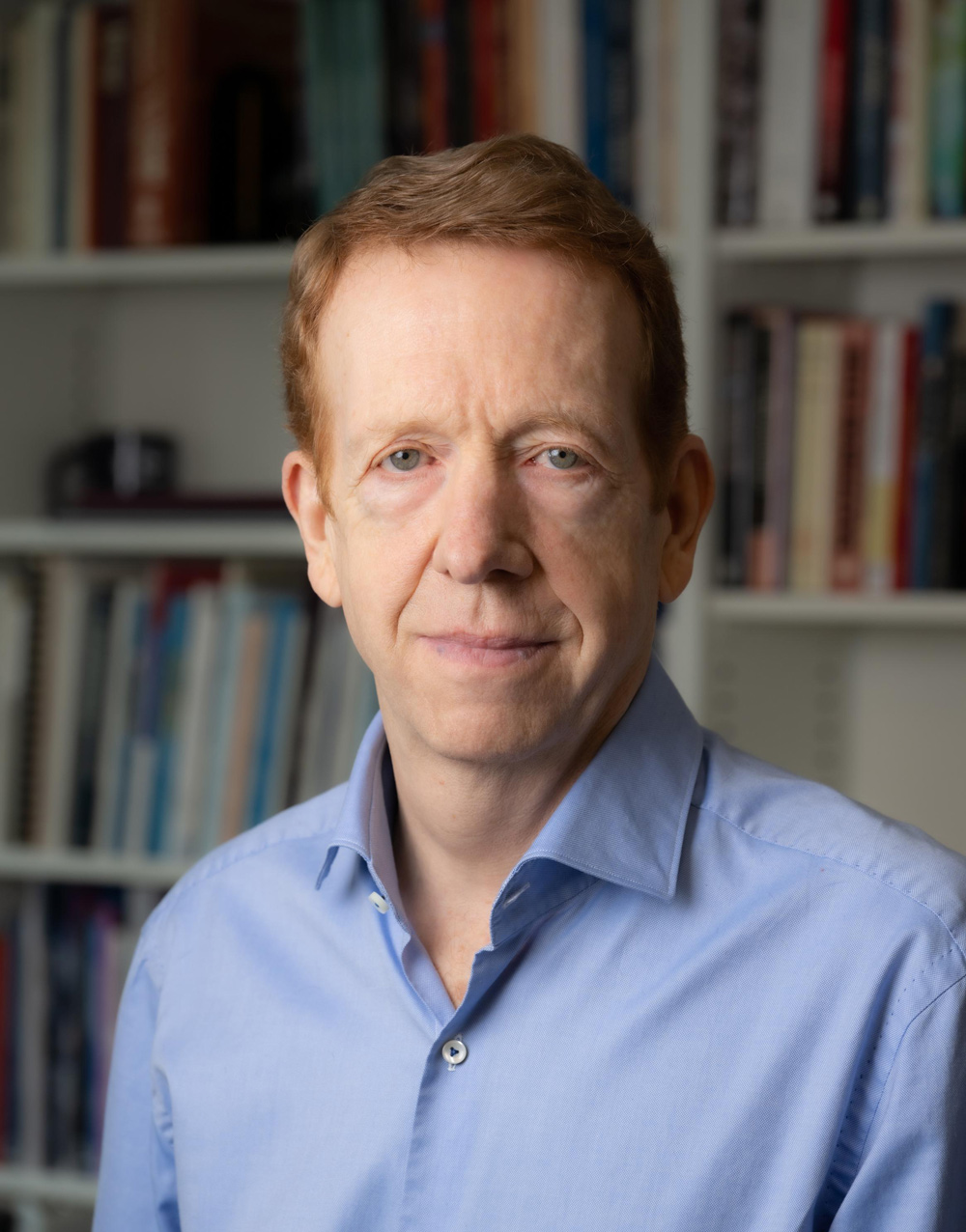

Thomas Carothers, McKenzie Carrier
Despite offering security benefits to candidates and the EU alike, the enlargement agenda appears stalled. Why is progress not being made, and is it time for Europe to rethink its approach?
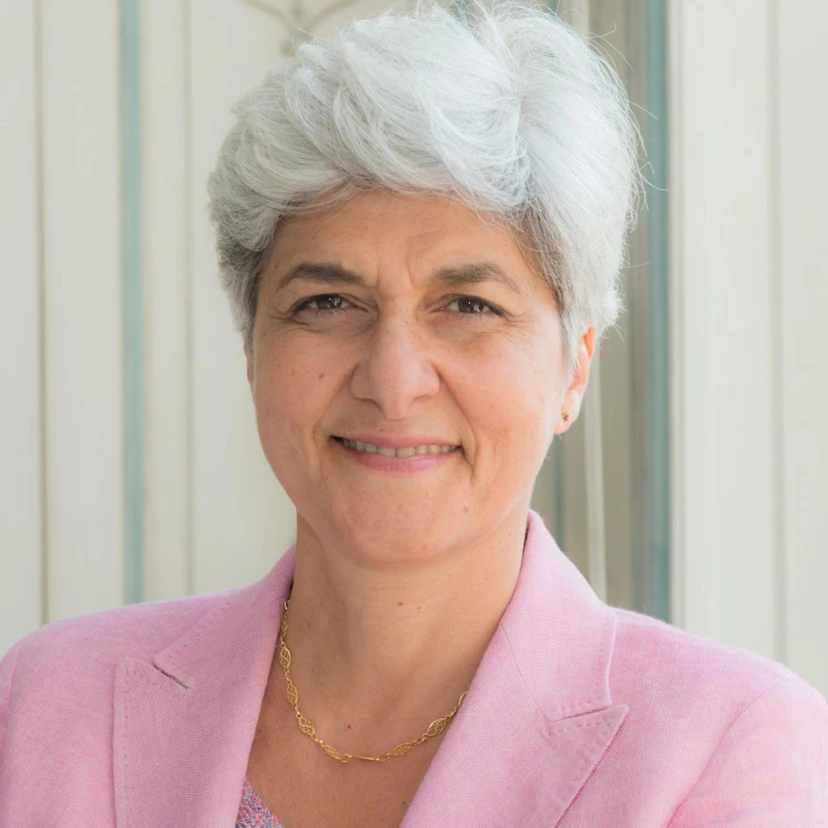
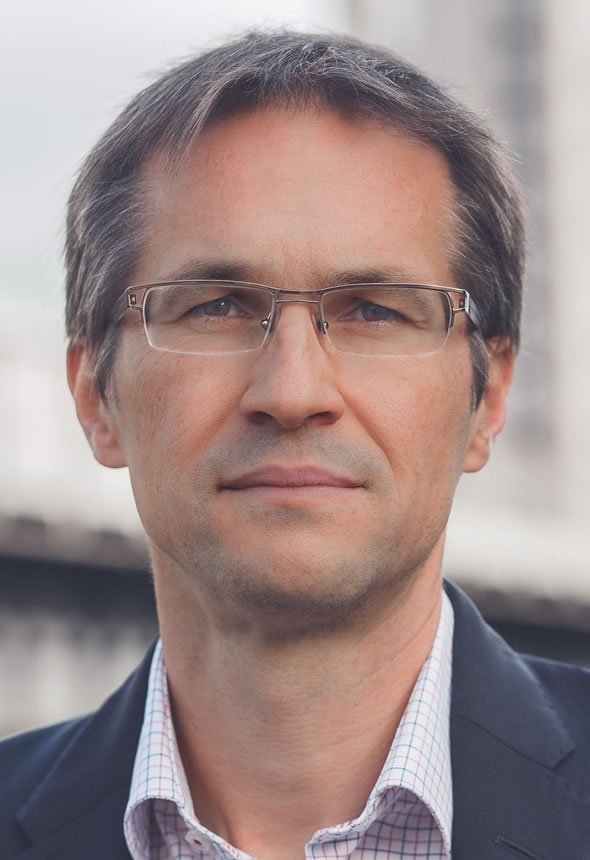
Sylvie Goulard, Gerald Knaus
Disillusioned with the West over Gaza, Arab countries are not only trading more with Russia; they are also more willing to criticize Kyiv.
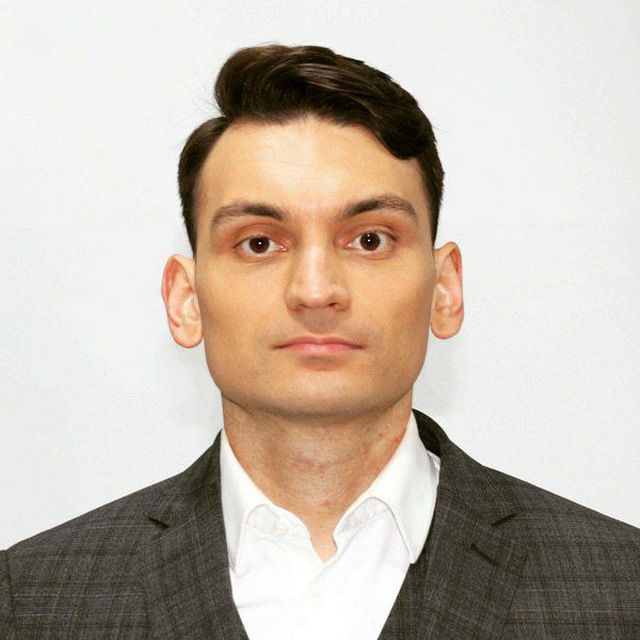
Ruslan Suleymanov
With the blocking of Starlink terminals and restriction of access to Telegram, Russian troops in Ukraine have suffered a double technological blow. But neither service is irreplaceable.

Maria Kolomychenko